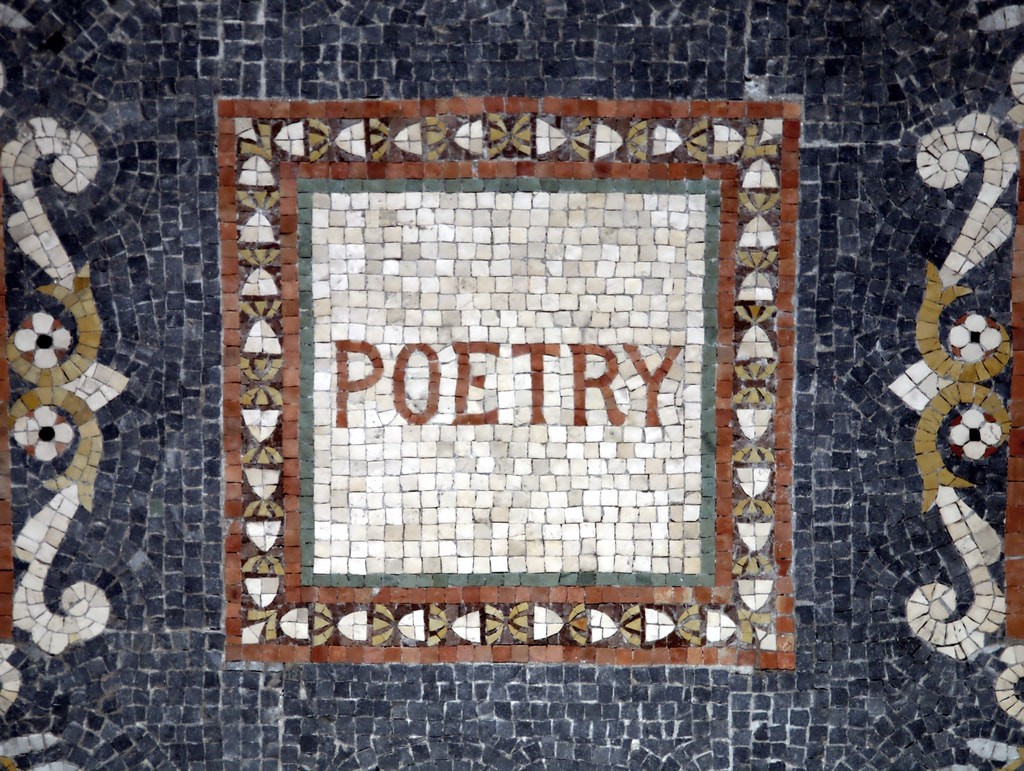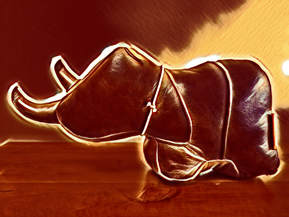 For those of you who are unfamiliar, RHINO is an international journal that publishes poetry and flash fiction including translations. We have a long history that stretches more than forty years. We call "home" Chicago, but recently we have a small contingent in the West near LA. And it's no secret that the way RHINO editors work is a bit unique. We actually meet eye-to eye! Not just three or four of us, but a whole crash of us. After doing a bit of research, I understand there's another (little-known) name for a congregation of rhinos--a stubbornness. (Check out this list of animal group names by clicking here.) That seems a bit odd, a stubbornness of rhinos, or RHINOs, but maybe it's a fit. In the two weeks before each meeting, and every day really, editors are reading submissions on the online submission manager. Once a poem (or a group of poems) has had four readers or more and at least ONE of those editors gives the poem a ONE using a three-point ranking system, it is sent to the table for discussion. Any and every poem given a "1" by even one editor gets discussed. That's pretty amazing considering we receive thousands of submissions a year from April to October. Click here to learn more about submissions. And check out our new website while you're there. Between 10-15 editors on any given week gather around a big table in someone's home. We open our laptops and fire up the iPads to call up the submissions that will be discussed. The poem is read aloud at least once, and then discussion ensues! We try to be somewhat efficient given the volume, but often the six or seven minute timer goes off and the discussion about how well the poem works, how it impacts us as readers, how it fits with what we've published, and what we'd like to publish continues. Believe it or not, there's not much arguing. We try to keep things friendly. We have editors among us working as teachers, the self-employed, employed in a library, or working out there in the world somewhere, and the retired from a variety of careers. Many of us have MFA's but not all. Most of us write and publish poetry. Quite honestly, we celebrate the differences among us. We need those differences. Some of us lean to the lyrical, some the experimental, and others might be fans of a good narrative. We're always paying attention to language. That's hard to ignore! And craft! I'd have to say that when one reads as many poems in a year as we do, a poem really needs to stand out to make it to the table. Maybe the language just sings. Or there is an adept handling of a topic that outshines many others, for instance, love poems or poems of relationship or family strife--types of poems we see often. Taste naturally also comes into play. And we all want something that moves us! One of my favorite parts about the discussion is that on first blush one might not be interested in a poem at all. After a convincing argument is made, one can become a convert! We vote by simple majority. If there are ten of us at the table, it takes six votes for the poem to be accepted. We're not just one editor making decisions, or even two or three. We're a CRASH of rhinos. Most of us have a "job" we do to make RHINO work in addition to reading--database, website guru, book-shipper, event managers, business manager, publicists, FORUM hosts and RHINO Reads moderators--plus the people who get that publication to the printer every year! We're not always well-oiled. But our intent is there. And the only way this works as Ralph Hamilton, editor-in-chief, will tell you is through mutual respect and concerted acts of kindness in an effort to celebrate a bit of the poetry that comes our way. In the end, we stubbornly and with deliberation publish poetry, yes. But I've met a lot of wonderful people through my Rhino connection. Publish, poetry, and people. The perfect trifecta.
3 Comments
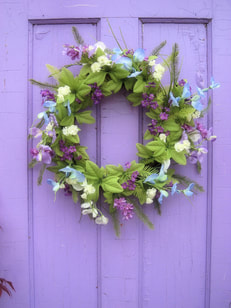 One of the writing strategies I like to use almost every time I begin a draft is to generate a list of words from another source, from a book of poetry or fiction or from almost anything written that's lying about. Sometimes there's some intentionality and sometimes not. I look for words that aren't in my personal lexicon--not that I don't know them, but I may not think to use them. Then I prop up that list of words in front of me at the computer or on my lap. SOMETIMES a word on that list will generate an entire poem. I'm always looking for a way in--and about 80% of the time I'd say, my poems spring from a list. There's nothing proprietary about a list of words from another source, but I love how the list pushes me in a new direction or actually becomes the prompt or allows me to use much fresher language than I might otherwise. It eliminates hum-drum, I hope. I've divined words from poetry books like Break the Habit by Tara Betts and Maggie Smith's Good Bones, and Pattiann Roger's book, Holy Heathen Rhapsody. and even a fiction book, Bradbury's Fahrenheit 451. I still marvel at what gets spit out on the page. I've read through entire books circling words as I read or just found and used a single longer poem. Rarely am I looking for a specific type of word for a specific subject. Rather, the goal is to gather words that do not seem to fit together or the subject, if there is one. The list IS my entry to the draft whether I'm writing about Frida Kahlo, the hospice caregiver bathing my mother, or my brother's childhood clubhouse. This past week I wrote a draft of a poem currently titled either "Un-dream" or "Upfront." I had been reading through poems in the anthology section of Amorak Huey and Todd Kaneko's new book, Poetry: A Writers' Guide and Anthology. My list for the poem I was working on this week--"Un-dreaming/Upfront"--was periphery, feistiness, sachet, lustrous, and quaint. Usually, the list is much longer, but the word "sachet" leaped at me, and I needed a poem draft that day to take to my writing critique group. As it turns out, I only used one word from my list, but more often I mayuse six or seven or more of the words from a list of twenty, for example. Here's an excerpt from the poem which ended up being about a dream and The French Lieutenant's Woman and Diego Rivera and . . . "all while I pretend to be more the me of me, daffodils and bunny-shaped sugar cookies with red hots for eyes, until I remember tucking sachet in with the thigh-high black stockings and the pink garter belt so they’ll smell of lavender next time I tug them out, who knows when," Part of me can't imagine not writing this way. I've been doing it so long. One of my mentors, Alice George, used to talk about a poem's "front porch" as the beginning of a poem that got you to where the heat of the poem was, got you to the real poem you wanted to write. You built this elaborate porch but you didn't need it. I think of my strategy, my list, as "the purple door." The entrance. My entrée. 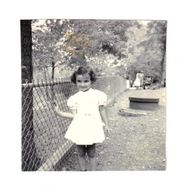 Recently I had a conversation with a non-poet friend who asked me why I write poetry or even read poetry. He had read some of my recent book, Tapping Roots, which was actually the first group of poems I ever pulled together. (I had already prompted him that I appreciated feedback.) This book is about growing up Midwesterner, and in particular, Southern Illinois., about people who have influenced my childhood and adult pilgrimage. If you don't count college, I've lived in thirteen "homes," but the place I still think of as "home" is the town where I was born, Belleville, Illinois--even though I only lived there for the first FIVE years of my life. I've been in the Chicago area for two-thirds of it. If people ask where I'm from, I say "Chicago," because of course in a way that's true. The majority of my adulthood was spent in one suburb or another. There's a certain odd pride in being "from" Chicago, but my heart, corny as that sounds, still belongs to the south of me. I digress. My friend said he could really identify with so much in my book as he had similar experiences growing up (same generation and similar economic status in the early years), so he could see why this poetry at least affected people. On the other hand, he likes to read fiction that has nothing to do with his life--mysteries with involved plots--far from his daily life and work. The implication was that his choice of fiction did not "work" the same way as my poetry seemed to do. I walked away from this conversation having multiple conversations of my own in my head. The simplest answer to his question is that I write, and particularly poetry, to CONNECT. It seems like such a transparent yet "rings-true" answer. (Yes, I know that there are poets who say they don't care if someone likes what they write.) At a high school lit fest workshop I led last week, a student asked why I write poetry. I'm pretty sure that telling eighty high schoolers that when I write, I feel a HIGH was not the wisest idea--but I blurted it out without apology. Of course, my response elicited a few giggles and snickers, but I also saw some head-nods. Is it the passion that comes first or the high? Is it the sense of connection when a few others read and like what I write, what any of us write, that propels? Doesn't the author of those mystery novels also connect with his reader, at least with the reader's need to escape or have a vicarious experience? I guess there are really two acts--the creative one and the connective one. It makes me think about which act drives my writing, any writing--the act of creation or the desire to connect. Steve Jobs has said, "Creativity is just connecting things. When you ask creative people how they did something, they feel a little guilty because they didn't really do it, they just saw something. It seemed obvious to them after a while. That's because they were able to connect experiences they've had and synthesize new things." I'm pretty sure he didn't write poetry, but his acts of invention were similarly wrapped in a need to connect, conscious or otherwise, and the outcome of his "work" and his "passion" was connection. I started mulling over other facets of my intentional life. Friendships, teaching, photography, family, emails, FB, blogging, even doctoring or walking, all things I do with more or less relish. In every single instance, connection is the key. I choose passion and connection over isolation and loneliness, and I appreciate that sometimes that happens in the presence of other humans and sometimes in the process of the solitude of writing. Yesterday I felt like I was part of a BIG DEAL. I participated as a judge for a LitFest held at a far west suburban high school. Evidently, it's been a "thing" for a couple decades. Students from thirteen schools participated. Leading up to this event, I read and commented on 235 poems and then yesterday led two poetry workshops. At the Fest, students heard the keynote, Simone Elkeles, best-selling author of teen romance novels, speak about writing, her process, writing as career, the general lack of glamour, the need for revision. She had the students with her all the way. After, students had an opportunity to attend two of six workshops in diverse genres--slam poetry, personal essay, descriptive sketch, dramatic scripts, and poetry. My workshop centered on Found Poetry--centos, cut-ups or remixes, and erasures. Each of the 120 or so students who attended the poetry workshop had a chance to write a cento and an erasure poem. There was little hesitation on their parts to write or share--a marvel in itself to me after so many years in the classroom prodding reluctant learners. I provided a list of lines for composing short centos. And three passages for erasure poem experimentation--a section from Bradbury's Fahrenheit 451, a poem that appeared on Rattle after the death of Stephen Hawking, and a letter from Nelson Mandela to his daughters. My hope was that students would see ways to FRESHEN their writing. I was certainly impressed! How wonderful to have students around me who WANTED to take the risk. It might seem odd, but the most impressive part of the day was the award ceremony. You might think boring, long, drawn out, but more than 300 students gathered in the auditorium to celebrate each other and WRITING awards. Students CHOSE to attend this LitFest. chose to submit pieces of writing beforehand. Judges read and assigned awards for Honorable Mention, Third, Second, and First Place, and then lastly, the Critic's Choice award. I actually felt quite emotional thinking about the efforts behind this annual event that has taken place for a couple decades, the people who made it happen, and the excitement of individual students when names were announced and celebrated by classmates who cheered them on. My mind spun to sporting events where the cheering can be deafening. How often do we get to see this type of jubilation over WRITING. It's so often such a solitary endeavor, and often unrecognized. While judges read the top winning pieces, there was no audience chatter, no cell phone distraction, and no one exited. The audience was diverse, but the response was uniform--respectful! It seemed like a BIG DEAL! My favorite conversation of the day was with a young woman, a senior named Mary, who had been to the LitFest four years in a row. She approached me during writing time to ask my opinion about short poems. She was articulate and earnest. She told me that this year she had submitted a shorter poem uncharacteristically, and that she was beginning to think that there was some merit to "less is more." She said at times it was hard to give up passages that just weren't working, hard to let them go--the idea often attributed to Faulkner--“In writing, you must kill all your darlings” and more recently to Stephen King, who evidently wrote, “kill your darlings, kill your darlings, even when it breaks your egocentric little scribbler’s heart, kill your darlings.” I found myself so moved by her insight (something I'm only now acquired as a more "seasoned" writer, her spirited eyes, and her ease in conversing about something that was clearly a passion. It was not so much that she was asking about "short poems" in the end, but about a writer's ability to discern what's working. I think her analysis of the merit and challenge of drafting and revision required no response from me--I simply nodded vigorously. As an aside, another young woman, maybe a freshman, approached me and asked what do you do about those lines you've written in a story or a poem that you LOVE, but when you give the manuscript to someone else to read, they don't "get" that one line you think is pivotal. My response was that maybe it's her obligation to look back at it and without overexplaining it, see if she can figure out how to help the reader get there. Such thoughtful people. As a teacher, it was good to be back in a school which feels like home to me. At the awards ceremony I was pleased to see that in the process of blind judging, I had chosen Mary's poem for third place-----a "short" poem titled "Home." - - - - - - - - - - - - - - - - - - - - - - - - - - - - - - - - - - - - - - - - - - - - - - - - - - - - - - - - - - - - - - - - - - - - - - - - - - - - - - - - - - - - - - - - - - By far this erasure below by Austin Kleon received the best response from the high school crowd! Find Austin here: austinkleon.com/newspaperblackout/ 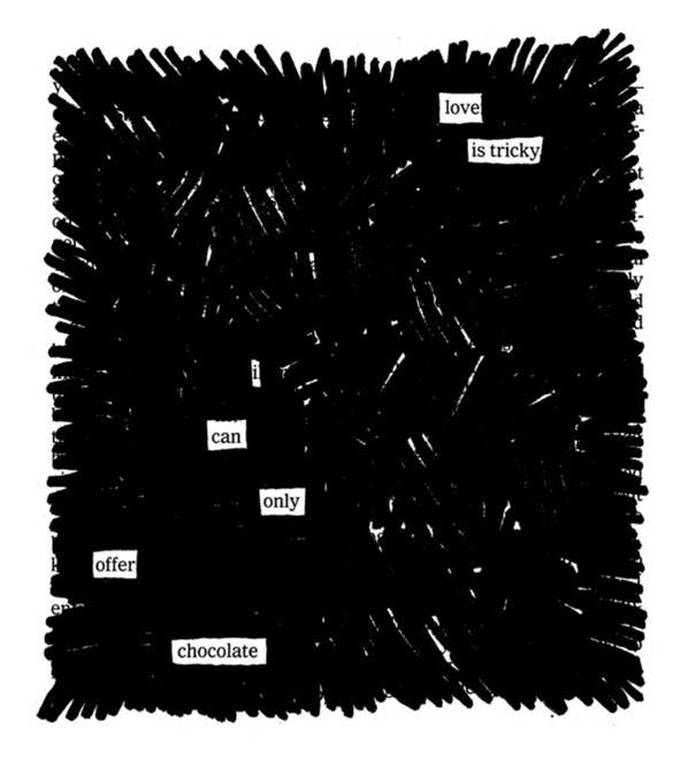 Want to tackle a cento--the uniting of lines from other poets’ writing to form a collaged poem. Here's a list to help you begin. a dead raccoon (Lauren Gordon) all its salty tears (Shannan Ballam) And whatnot (Esther Lee) check (Sean Howard) disappear without a trace (Ada Limon) emptying its anger (Kyle McCord) honey from my lips (Jeff Whitney) I am not light. I do not gallop. I'm ash (Donna Vorreyer) I cut my hair. (Anna Meister) I mistranslate myself. (Kelly Corinda) in the morning world (Robin Chapman) indelible tattoos (Terrance Hayes) into the river a stone's throw (Lisa Fishman) it is easy to imagine (Gordon Buchan) It no longer opens (Katherine Hollander) it's totally over (Kay Ryan) of air. (B Soloy) shimmering (RKR) standing (Ross Gay) Talk to me. (Christine Swanberg) the blood on the moon drips (Micah Bateman) the drowning clutch anything (Emily J. Cousins) The heart is a cloak (Ralph Hamilton) the trees (Andrew Haley) this hole in me (Larry Janowski) thunder punctuates (Steven Stamatis) time felt like a kitten (Bill Yarrow) to panic at any time (Anne Shaw) to spit or to spirit away its pain (Galway Kinnell) to the eyes (Angie Macri) we read the article with a little shake of shock (Matt Mason) What is missing (Tim Green) Where the fire enters (Roger Reeves) wings. They buzz (Thom Caraway) write like you mean it (David Ulin) You found me with my head bowed. (Matt Mauch) Want to try an erasure poem. Here are a couple texts for experimentation! letter_to_daughters_nelson_mandela.docx fahrenheit_451__ray_bradbury.docx 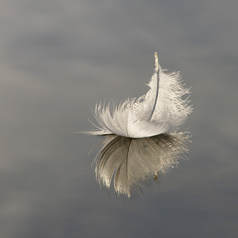 So I missed all of March. My own kind of madness. Didn't plan on my Florida vacation landing me in the hospital, but I'm hoping to be back on the blog . . . Recently I was asked to judge the poetry submissions for high school students from 13 schools who will attend a Lit Fest next Friday. Writer-judges from multiple genres received submissions, but the poetry category was flooded with submissions--235 to be exact. I read each poem and commented on each poem! Then I had to narrow down the choices and come up with aCritic's Choice. Ultimately, the two poems I chose could not have been more different--one was about a "coming out" experience layered in language about time zones and and ghosts of memories (so surprising), and the other is an outward-looking poem about Leopold II of Belgium who exploited the people of the Democratic Republic of the Congo, something I knew nothing about. (Leopold's deeds related in the poem sound quite 21st century). One poem uses a narrative style that could be something other than a poem, and the second uses short lines and consistent stanzas and looks more "poem-y." As I read this hefty pack of poems, I kept asking myself what I was looking for, what would make one poem rise above the others. In the end (and partly because of the sheer quantity of poems that I read), I went for impact. What did I remember? What drew me in and made me want to come back for another read. I've been told, even by a therapist who works with troubled children and teens, that poetry is a "thing." And something he never gave much thought to in the past. I would guess that 40% or more of the poems were written by girls (ostensibly as it was a blind reading) who wrote about the trials and disappointments of relationships. The word DEPRESSION came up in more poems than I would have liked to see. Of course, poetry is a vehicle of emotion, but it was distressing to see just how many students reflected feelings that many adults struggle with their entire lives. There were abused children, neglected children, children of divorce or alcoholics trying to recover already from things that have shaped them in the first dozen years of their lives. Sad. Disconcerting. Yes, troubling. When I read about and watch and listen to the teens who swarmed D.C. and hear the eloquence and the heart of what they have to say, I have hope. Emily Dickinson wrote: "Hope is the thing with feathers / That perches in the soul." I wonder what else there is if there is not HOPE. These young people post-Parkland, these poets writing from their chests, are the embodiment of HOPE. Their bodies, voices, silence and rage are HOPE. And yet, they have to navigate the same alleyways and secret gardens and plastic-riddled oceans as the rest of us. Words on paper can bring whole countries and peoples together. If they're not to be meaningless, then we best be studying all signs and kinds of feathered hope. Hope for transformation and light. Image: https://www.flickr.com/photos/treehouse1977/2892417805 |
Archives
March 2021
The Revival Tour
Poet Bloggers 2018 Kelli Russell Agodon- http://ofkells.blogspot.com/ Donna Vorreyer – https://djvorreyer.wordpress.com Beth Adams – http://www.cassandrapages.com Sandra Beasley – http://sbeasley.blogspot.com Carolee Bennett – https://gooduniversenextdoor.com/ Mary Biddinger – wordcage.blogspot.com/ Andrea Blythe – http://www.andreablythe.com Dave Bonta – http://vianegativa.us Jim Brock -- http://picturesthatgotsmall.blogspot.com James Brush http://coyotemercury.com Angela T Carr https://angelatcarr.wordpress.com/ Grant Clauser http://www.uniambic.com Kevin Connor – https://ordinaryaveragethoughts.wordpress.com/ Jared Conti – http://www.theoracularbeard.com Jill Crammond https://jillypoet.wordpress.com/ Jenelle D’Alessandro – http://www.borderandgreetme.com Laura E. Davis – http://www.dearouterspace.com/ Kate Debolt – http://www.katedebolt.net/blog/ Heather Derr-Smith – ferhext.com/ Risa Denenberg – https://risadenenberg.weebly.com/blog Cynthia Schwartzberg Edlow http://cschwartzbergedlow.blogspot.com Andrew Eickstead http://www.unleashingthewordhoard.com Lou Faber – https://anoldwriter.com Jeannine Hall Gailey – webbish6.com Gail Goepfert –In the Mix gailgoepfert..com/blog Erica Goss http://ericagoss.com Sarah Kain Gutowski – mimsyandoutgrabe.blogspot.com Erin Hollowell – http://www.beingpoetry.net . T Trish Hopkinson https://trishhopkinson.com/ Jennifer Hudgens https://jenniferelhudgens.wordpress.com Catherine Hume : https://catherinehume.wordpress.com/ Crystal Ignatowski – http://somehiatus.tumblr.com/ Charles Jensen – https://charles-jensen.com/kinemapoetics-blog/ JJS https://thisembodiedcondition.wordpress.com Jill McCabe Johnson http://jillmccabejohnson.com/blog-chanson-daventure.html Collin Kelley http://www.collinkelley.blogspot.com Kathleen Kirk https://kathleenkirkpoetry.blogspot.com/ Anita Olivia Koester https://www.forkandpage.com/ Lakshmi – thiswinterheart.tumblr.com Courtney LeBlanc – wordperv.com Lorena P Matejowsky https://nothingbutblueskies.wordpress.com/ Marilyn McCabe O Write.MarilynonaRoll.wordpress.com Ann Michael – www.annemichael.wordpress.com Amy Miller – http://writers-island.blogspot.com/ James Moore – jameswmoore.wordpress.com LouAnn Sheperd Muhm – https://louannmuhm.com/ January Gill O’Neill – http://poetmom.blogspot.com Shawnte Orion http://batteredhive.blogspot.com/ Ren Powell http://renpowell.com/blog/ Bethany Reid http://www.bethanyareid.com/ Susan Rich – http://thealchemistskitchen.blogspot.com . Lee Ann Roripaugh https://runningbrush.wordpress.com/ Sarah Russell – https://sarahrussellpoetry.net Martha Silano : http://bluepositive.blogspot.com/ Kim Bailey Spradlin – www.kimbaileydeal.net Bonnie Staiger –https://bonniestaiger.com/ Rosemary Starace https://thresholdview.wordpress.com/ Hannah Stephenson – http://thestorialist.com Stephanie Lane Sutton athenasleepsin.wordpress.com Christine Swint – https://balancedonedge.blog/ Dylan Tweney – http://dylan20.tumblr.com/ Michael Allyn Wells: http://stickpoetsuperhero.blogspot.com/ Allyson Whipple http://allysonmwhipple.com |
